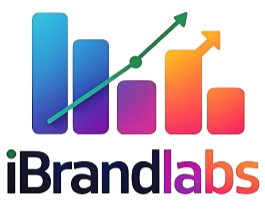
LSI vs Semantic SEO: Key Differences & What Matters for Google Rankings

In the ever-evolving world of SEO, it’s easy to get lost in jargon and outdated practices. Two terms that often come up are Latent Semantic Indexing (LSI) and Semantic SEO. While they may sound similar, they serve very different purposes—and understanding them can help you optimize content more effectively for modern search engines.
What is Latent Semantic Indexing (LSI)?
Latent Semantic Indexing is a concept from the early days of information retrieval. For example, if your main keyword is “apple,” LSI terms might include “fruit,” “nutrition,” or “orchard”—words that help disambiguate whether you’re talking about the fruit or the tech company.
However, there’s a big caveat: Google does not use LSI in its algorithm. In fact, Google’s own representatives have stated this multiple times. The web is dynamic, unlike the static databases LSI was built for. So why does LSI still come up in SEO circles?
Because while the idea of using semantically related terms is valid, the terminology is outdated.
What is Semantic SEO?
Semantic SEO, on the other hand, is very much a part of how modern search engines work. It involves optimizing content around the intent behind search queries rather than just keywords. It means creating content that answers users’ questions comprehensively, using related terms and contextually relevant information.
Here are a few key principles of Semantic SEO:
-
Understand search intent: Are users looking for information, a product, or a how-to guide?
-
Use entities and topics: Instead of just focusing on keywords, target topics and entities (like “iPhone” being an entity under the Apple brand).
-
Answer related questions: Include FAQs, answer boxes, and use headings effectively.
LSI vs Semantic SEO: Key Differences
| Feature | Latent Semantic Indexing (LSI) | Semantic SEO |
|---|---|---|
| Origin | Information retrieval in the 1980s | Modern search engine algorithms |
| Relevance Today | Mostly outdated, not used by Google | Highly relevant |
| Focus | Related words/terms | User intent and topic depth |
| Tools | LSI keyword tools (often inaccurate) | NLP tools, Google’s NLP API, content analyzers |
| Impact on SEO | Limited or no effect | Major impact on rankings and visibility |
What This Means for Your SEO Strategy
Relying on “LSI keywords” may give your content some added breadth, but it won’t necessarily improve your rankings. Instead, shift your focus to semantic relevance—creating meaningful, well-structured content that satisfies both users and search engines.
At iBrandLabs, we understand the nuances of modern SEO and content marketing. Whether you’re trying to increase organic traffic, improve your site’s authority, or align your content with Google’s expectations, our team leverages semantic SEO strategies that go beyond keywords to build real topical authority.
Final Thoughts
While LSI might be a buzzword that refuses to die, Semantic SEO is the future—and the present. By focusing on comprehensive, intent-driven content, you can build stronger connections with your audience and search engines alike.
Looking to future-proof your SEO efforts? Connect with the experts at iBrandLabs to start building content that truly ranks.


